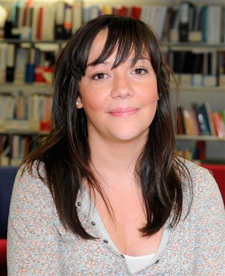A novel international research project will use satellite tracking software and ‘walking interviews’ to map the benefits social enterprise has on disadvantaged communities.
Glasgow Caledonian University (GCU) is one of six universities collaborating on the £180,000 study funded by the Australian Research Council and led by Swinburne University in Melbourne.
The three-year study incorporates geographical information system (GIS) software to enable it to determine the community impact of social enterprises – businesses which trade for a social purpose.
Researchers will focus on the Australian cities of Bendigo, Victoria; Toowoomba, Queensland and Launceston, Tasmania, where more than a quarter of residents live in socio-economic disadvantage.
Walking interviews with people attending five social enterprises across the cities including a laundry and recycled computer enterprise will be tracked and documented, to identify significant locations.
The research team will also interview staff and volunteers at each social enterprise as well as key members of each community, from politicians and police to business representatives.
Professor Jane Farmer, Professor of Health & Social Innovation at Swinburne University, Australia, is leading the research group. She said: “This study is the first robust investigation in the world into how social enterprises realise wellbeing for disadvantaged individuals and build capacity in disadvantaged communities. Using GIS and walking interviews enable us to identifying where individual wellbeing and community capacity are being realised.”
Dr Michael Roy, Senior Lecturer at GCU’s Yunus Centre for Social Business and Health, is an expert in the health and well-being impacts of social enterprise and will contextualise the data, which will be developed into a ‘wellbeing’ navigation app.
“I’m excited to be involved in a project which looks beyond the impact of social enterprises on individuals into the wider community,” said Dr Roy, a former Senior Policy Executive at the Scottish Government. “We have a world-class health service and public health research in Glasgow, and yet profound health inequalities persist.
“Social enterprises play a valuable role in addressing specific vulnerabilities at an individual level. But we think too that such action can have wider benefits on improving the communities in which people work and live. This new study will help us to understand those processes better.”
Social enterprise is a key focus for GCU researchers, who are currently leading a pioneering five-year study co-funded by the Medical Research Council and Economic and Social Research Council evaluating the potential of Scottish social enterprises as a public health intervention.

